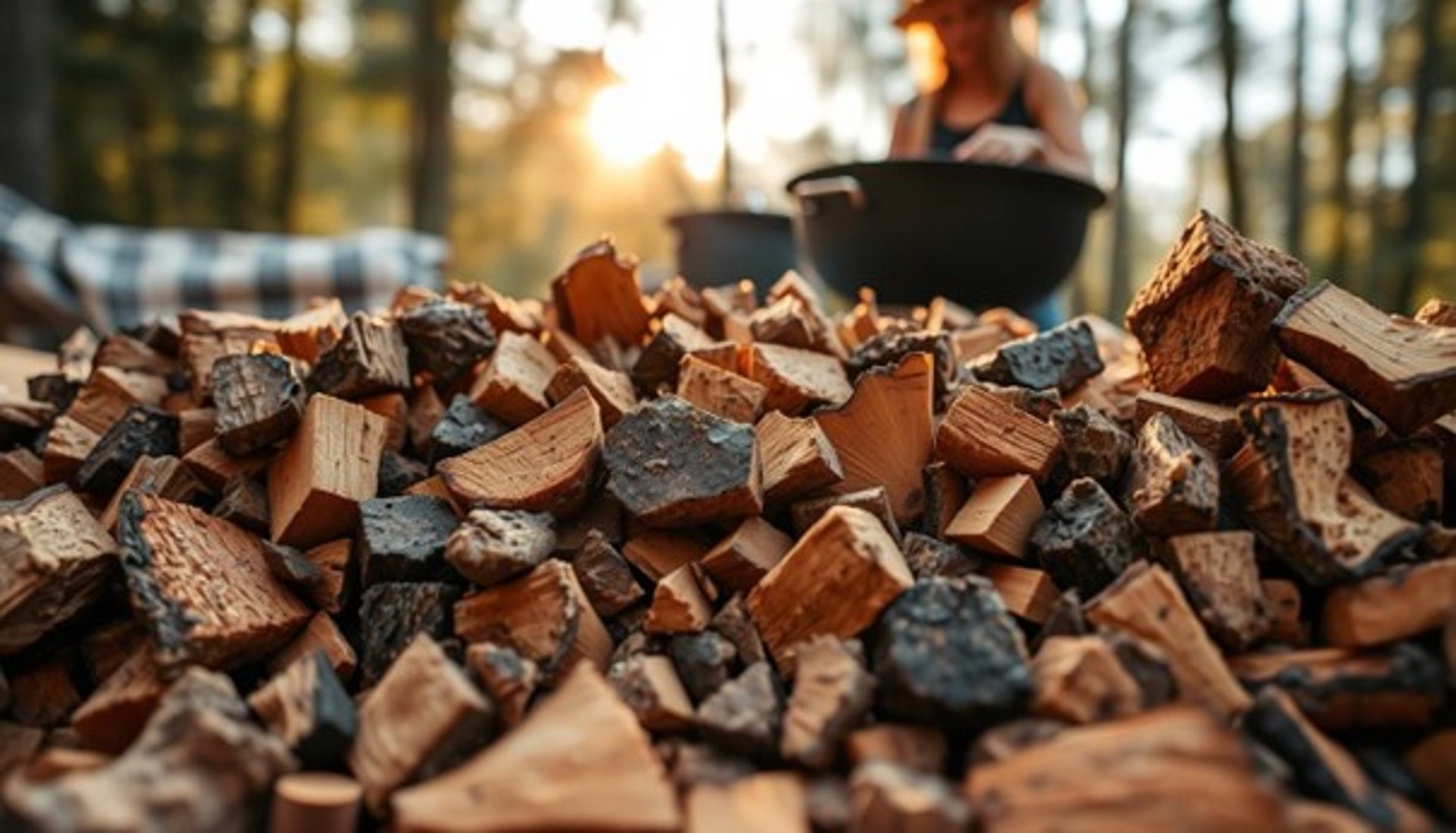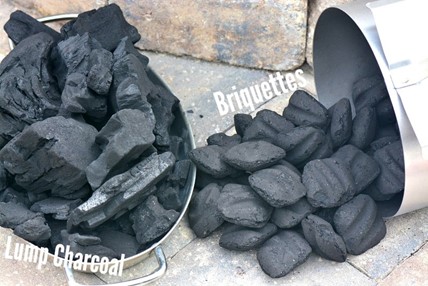
Choosing the Best Barbecue Charcoal
Grilling is an art, and choosing the best barbecue charcoal can make all the difference. Dive into the world of outdoor cooking fuels and see what fuel serves you best
11/8/20243 min read
Understanding Charcoal
Charcoal is key for any serious barbecue fan. To get the best from your charcoal grill, knowing the different types is important. We'll look at charcoal briquettes and hardwood lump charcoal.
What is Charcoal?
Charcoal comes from burning wood at high heat in little oxygen. This process removes water and other gases, leaving a black, carbon-rich material.
Types of Charcoal
There are two main types: charcoal briquettes and hardwood lump charcoal. Briquettes mix sawdust, wood scraps, and binders. Hardwood lump charcoal is natural wood pieces burned to a char.
Hardwood lump charcoal burns hotter and adds a unique flavor. But it's pricier and on averedge doesn't last as long as briquettes. Briquettes are cheaper and burn longer, making them a favourite for many.
Knowing the differences between these types of charcoal helps you pick the right one. Whether you want a long burn or a hot sear, you'll find the right fuel.
Why Natural Charcoal Outshines Briquettes
Many grillers start with briquettes, but here’s why natural lump charcoal is the superior choice:
Quick Ignition and Clean Burn: Natural charcoal lights faster and burns cleaner than briquettes, giving you precise temperature control.
Minimal Ash: Briquettes often leave excess ash, which can block airflow and affect consistent heat. Natural charcoal solves this problem.
No Chemicals: Briquettes may contain binders or fillers that impart unwanted flavors to your food. Natural charcoal ensures a pure grilling experience.
For the best results, preferably choose 100% natural lump charcoal, but there are however also natural briquettes available on the market. Unlike traditional briquettes, natural briquettes do not contain chemicals or additives, making them a cleaner option for long cooks. They also provide consistent heat for extended periods, which is crucial for instance when you’re aiming for that perfect tender brisket or pulled pork.
Look for brands that use only natural binders, such as cornstarch, to keep the briquettes together. This ensures that no strange flavors are introduced to your food.
How to Choose the Best Charcoal for Grilling
Not all charcoal is created equal. High-quality charcoal delivers consistent heat, minimal ash, and delicious flavor. Here’s what to look for:
Density and Burn Time
Heavy, dense charcoal burns hotter and longer. Hardwoods like oak or hickory are ideal for high heat and extended cooking. Compare light woods (like beech) to dense hardwoods to feel the difference.Chunk Size
Larger chunks allow better airflow and temperature control, making them perfect for both high-heat searing and low-and-slow smoking.Flavor Profiles
For smoky BBQ flavors: Choose hardwood charcoal like mesquite or hickory.
For versatile grilling: Opt for neutral woods like acacia, adding wood chips for extra flavor.
Why Cheap Charcoal Isn’t a Bargain by Definition
Quality charcoal saves money and effort in the long run. Here’s the math:
A $12.50 bag of low-quality charcoal burns for about 6 hours at 200°C.
A $22.50 bag of premium hardwood charcoal lasts 10 hours at the same temperature, providing consistent heat and better flavor.
Investing in premium charcoal means fewer refills, better control, and tastier results.
Top Tips for Charcoal Storage and Use
Store Properly: Keep charcoal in a dry, sealed container to prevent moisture absorption.
Test New Brands: Even trusted brands can change production methods. Stay critical and test regularly to ensure consistent quality.
Pair Charcoal with Wood Chips: Use wood chips like apple or cherry to add an extra layer of flavor to your food.
Maximize Your BBQ Potential
Whether you’re grilling steak, smoking brisket, or roasting vegetables, choosing the right charcoal transforms your grilling experience. Natural lump charcoal gives you better control, cleaner burns, and incredible flavors that briquettes simply can’t match.
Frequently Asked Questions
1. What is the best charcoal for beginners?
Natural lump charcoal is ideal for beginners. It lights easily, burns clean, and allows you to experiment with different flavor profiles.
2. Does charcoal type affect flavor?
Yes! Hardwoods like hickory and oak provide bold, smoky flavors, while lighter woods offer a more subtle taste.
3. How much charcoal should I use?
The amount depends on your grill and cooking method. For high-heat grilling, fill the grill halfway. For low-and-slow smoking, use less and control airflow for steady heat.
Conclusion: Fuel Your Passion for Grilling
The right charcoal is the foundation of every great BBQ. From quick sears to slow-smoking sessions, using high-quality natural charcoal guarantees consistent heat, easy management, and unforgettable flavors. Invest in premium options, store it properly, and let your grill do the rest.






